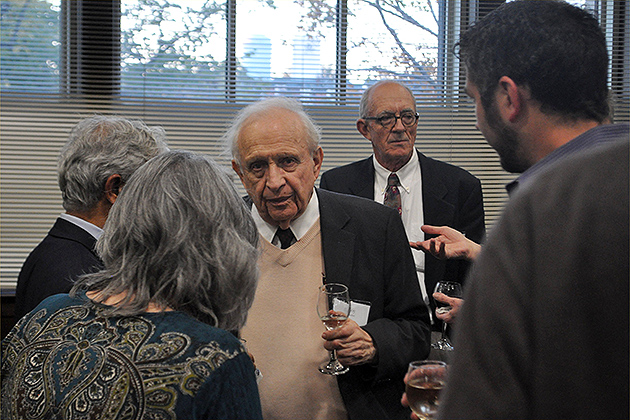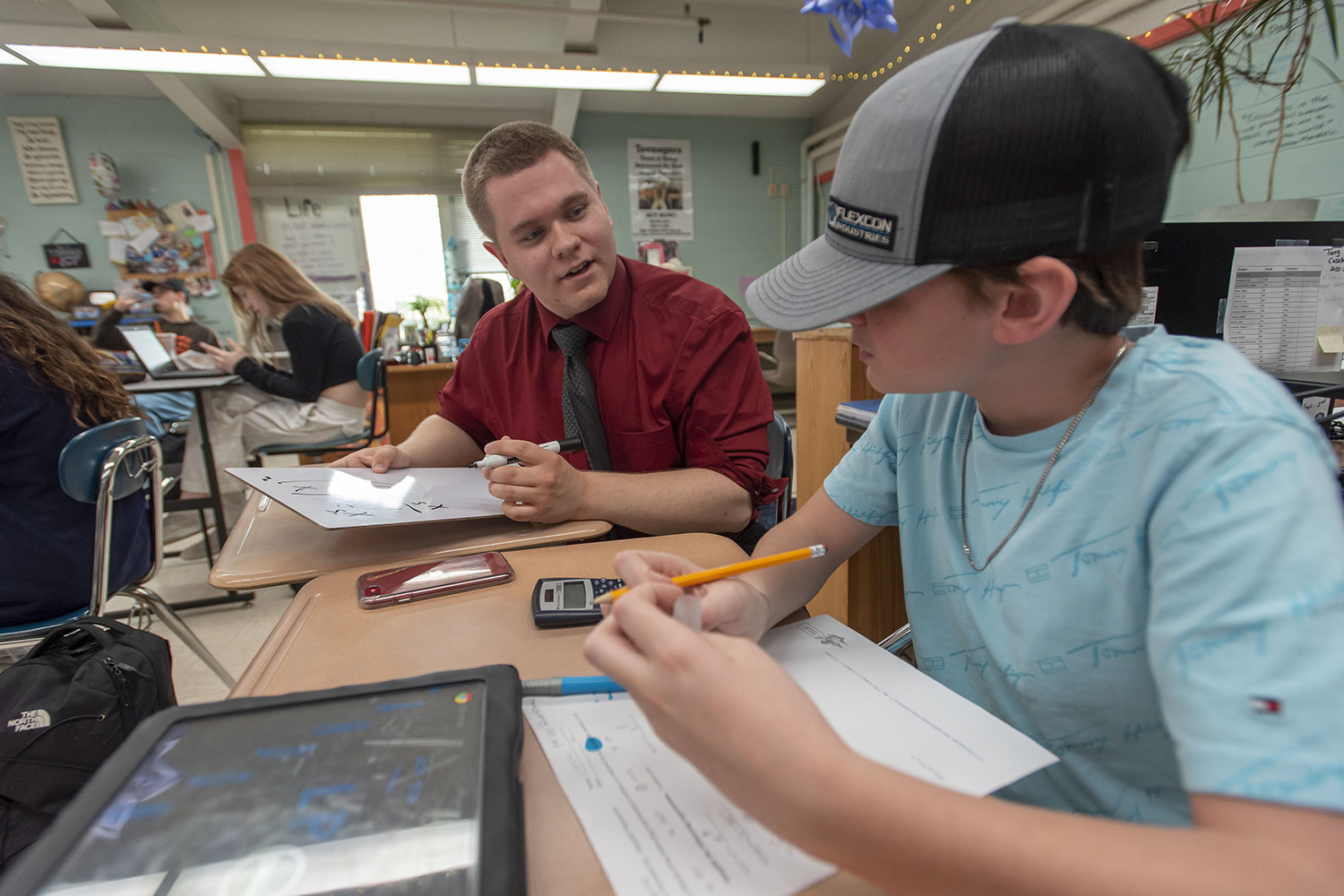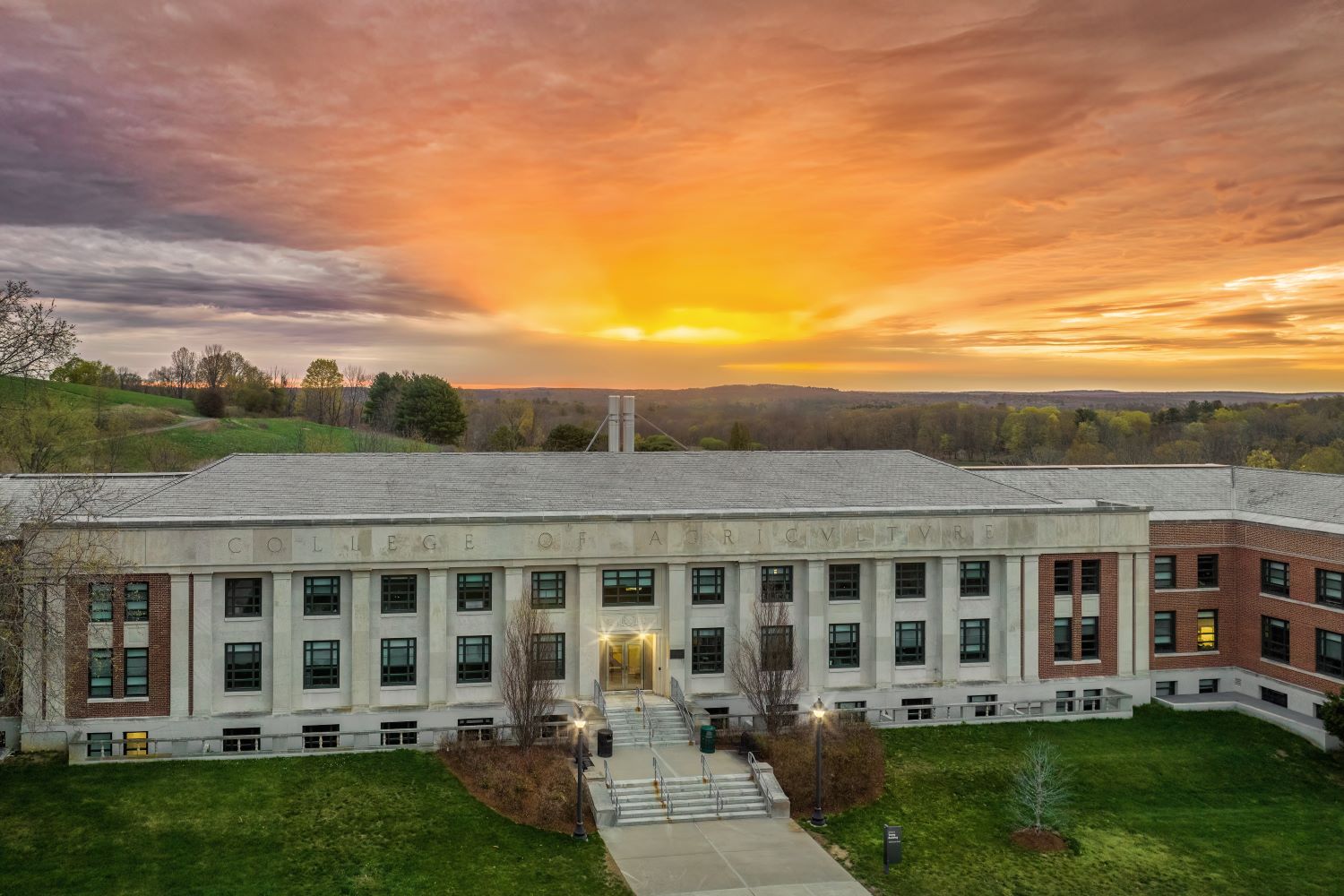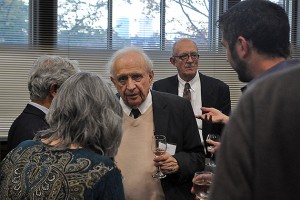
Roy Glauber, winner of the 2005 Nobel Prize in Physics and professor of physics at Harvard University, spoke at the 15th annual Katzenstein Distinguished Lecture at UConn on Friday Oct. 12.
The lectureship brings a Nobel Prize-winning physicist to campus each year to give a public lecture about his or her work and to receive the Katzenstein Prize in Physics.
Glauber’s Nobel-winning work relates to understanding quantum optics, or the interactions of light with matter at a quantum level. His 2005 Nobel prize, shared with John L. Hall and Theodor Hänsch, explained the fundamental properties of different types of light, such as those coming from a light bulb or a laser. Many of his theories are widely used today in the field of quantum optics.
Tony Le, president of the Physics Club and a fourth-year physics major, said that having a Nobel winner visit UConn each year is an incomparable experience for undergraduates.
“You can learn so much from them and their work, and then they come to campus and you get to meet them,” he said. “You see them face-to-face and you realize they’re normal people.” To realize that brilliant scientists are approachable makes studying physics that much more exciting, he said.
Glauber’s talk reviewed the history of quantum optics, touching on the popular notion that within quantum mechanics, an atom can be in two places as once.
“This is what we teach to freshmen, but it’s not quite true,” he explained, saying that in actuality, it’s impossible to predict where an atom is at any given moment. “We’ve had many years of these dilemmas and contradictions, and it started with Max Planck in 1900,” he said.
Glauber also spoke about his recent work in “ghost imaging,” in which a high-resolution camera can take a photo of something it can’t see by bouncing photons off the object.
“Glauber is really the father of quantum optics,” said Physics Professor Robin Cote, who hosted the talk. He also noted that, as a testament to Glauber’s sense of humor, he regularly wears a pointy hat and “sweeps” the stage clear of paper airplanes at Harvard’s annual Ig Nobel Awards for unusual and silly research.
The Katzenstein Distinguished lecture series is made possible by an endowment established in 1996 by Henry S. Katzenstein, who earned the first Ph.D. awarded by UConn’s Department of Physics in 1954. Katzenstein went on to found a company, now called Conexant Systems, that produces digital-analog converters and today has 3,000 employees.
“People often ask, what can you do with a degree in physics?” said Professor Douglas
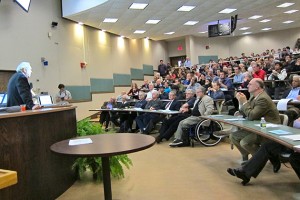
Hamilton, department head in physics. “Every iPod, every iPhone, every hearing aid has a digital signal that must be converted into an analog signal in order to be used,” he said.
Kalum Palandage, a 2010 Ph.D. graduate of the physics department and native of Sri Lanka, has been attending the Katzenstein lectures for nine years, he said.
“It’s good for the public because they try to make it simple, and you always learn something new,” he said. Even as a professor of physics at Trinity College in Hartford, he said the lectures always teach him something.
“Not everyone gets a chance to see a Nobel Prize winner speak in their lives,” he said. “It’s great that they have this lecture at UConn.”
